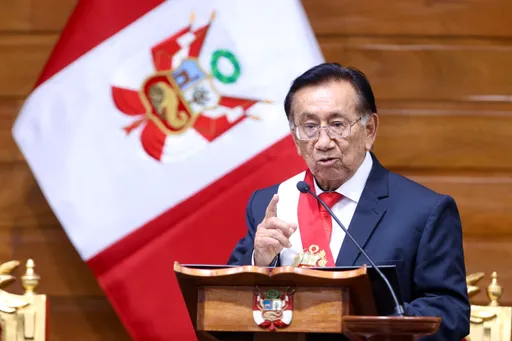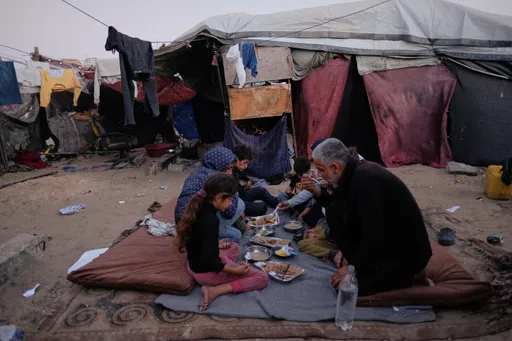Mali has said it will seek to overturn in international courts what Bamako calls "illegal sanctions" imposed by a West African economic bloc over delays to the country's elections.
Interim Prime Minister Choguel Kokalla Maiga made the announcement in an interview broadcast late on Saturday.
"These measures are illegal under several international conventions" including those which "prohibit sanctions against landlocked countries" like Mali said Maiga.
"We have formulated a response strategy against this process to coerce the Malian state," he said.
"Among the battery of measures (some are) legal in nature. We will contest these measures before the appropriate international institutions," he added, without stating where a case could be brought.
"(The sanctions) weaken our state and humiliate us but if one removes foreign influences (coming) between us as Africans, we can reach understanding," he said.
Massive demonstrations against the sanctions were staged in Bamako and across the country on Friday following a call by the ruling junta.
READ MORE:Malians in thousands protest African bloc sanctions on junta
ECOWAS sanctions
Earlier this month, leaders from the Economic Community of West Africa States (ECOWAS) agreed to sanction Mali, imposing a trade embargo and shutting borders.
The decision was backed by the United States, the European Union and former colonial power France.
As well as closing borders and imposing a trade embargo, ECOWAS leaders also halted financial aid to Mali and froze the country's assets at the Central Bank of West African States.
The move followed a proposal by Mali's junta to stay in power for up to five years before staging elections — despite international demands that it respect a promise to hold the vote in February.
Mali is already beginning to feel the effects of the sanctions.
Several airlines, including Air France, have suspended flights to Bamako. The country is also at risk of cash shortages.
The sanctions threaten to damage an already vulnerable economy in landlocked Mali, one of the world's poorest countries.
READ MORE:Mali's junta slams new sanctions by West African bloc























